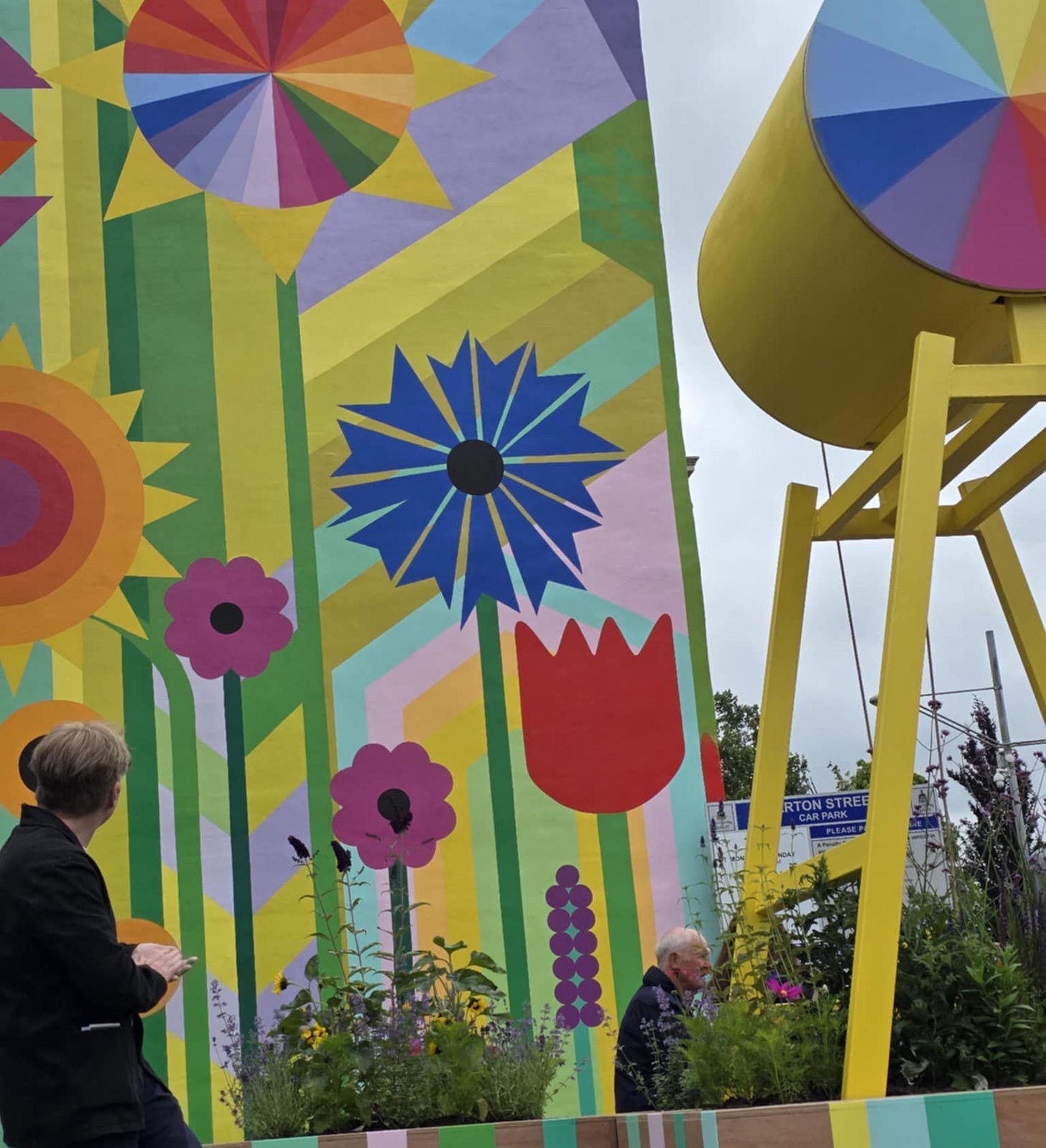Arts Council grant shutdown leaves creatives in limbo – and stunts UK innovation
A grant-giving system is offline for seven weeks, Fergal Kinney reports on the body-blow to creatives, and the precarity of the arts industry.
Artists across England are facing uncertainty after the Art's Council's grant-processing platform crashed, leaving thousands of applications for vital funding up in the air.
Grantium is the online portal where funding applications for Arts Council England [ACE] are submitted and managed. But with the portal going down at the end of July, the sector has been left in chaos.
Linda Bloomfield, who lives in Sheffield, works as a cultural producer while also supporting disabled artists, one of whom had a grant bid pending – the money would have been to help the artist develop her work.
When Bloomfield attempted to log into Grantium on 23rd July to check the progress of the bid, she couldn’t access anything.
“Everyone thought it would go down for a week or so,” explains Bloomfield, who is very familiar with the unpopular web platform. “But then it went on a bit longer.”
“The technical issues are worse than anything anyone thought,” she adds.
In a statement on 5th August, ACE – who say they have ruled out the possibility of a cyber-attack – confirmed they have “taken the decision to temporarily pause applications for National Lottery Project Grants [NLPG],” and are working to a deadline of mid-September for Grantium to return to functionality.
ACE believes a surge of logins caused the portal’s infrastructure to crash.
“We know this pause to NLPG is deeply frustrating news for those planning to apply in the next few weeks,” said Chief Executive Darren Henley in a statement, “I want to apologise most sincerely to them, and to everyone who’s experienced disruption in the last fortnight.”
A Q&A with Henley about the Grantium outage has since been released along with a rolling Q&A page about applying for funding is being regularly updated say the Arts Council.
“Cultural funding is precarious in the UK, we know that already. It’s impossible to underplay how important Arts Council England is.”
ACE launched Grantium in 2016, midway through a decade defined by the public body’s need to manage stringent budget cuts in the austerity era (the incoming Coalition government cut ACE by a third in 2010.) Almost immediately following its launch, there have been persistent concerns about Grantium’s functionality, design, and ability to withstand demand. In the 2020s, this has been compared unfavourably to surprisingly well-regarded platforms like HMRC’s Self Assessment portal or HM Passport Office.
“I had many heads-ups from people about how complex Grantium is for a very simple process,” says Matty Sairo from Clitheroe, who is still “in the dark” about his grant application.
Sairo’s background is in new technologies – his application was for a project using AI in traditional print and pottery practices – but despite this, friends warned him to wise up on YouTube tutorials about Grantium.
“It’s not an easy to follow user system,” says Sairo. “There are lots of little hacks even just to save something.”
The opinion among applicants is that, even at best, Grantium – with its clunky, line-by-line procedure – requires weeks of free labour for potentially no return, at worst it is outright hostile towards disabled and neurodivergent users.
Plans to improve the system – a tacit acceptance from ACE that Grantium wasn’t working – were shelved during the pandemic.
“Grantium has not been fit for purpose for a long time,” says Bloomfield, “and they know that.”
When Grantium went down at the end of July, it was at the worst possible time for Blackburn visual artist and gallery director Jamie Holman. “We were just on the edge of pressing send,” he says of a bid, the contents of which he would prefer not to disclose until the funding decision has been made, but was under £30,000 in one of ACE’s 54 Priority Places (meaning areas like Croydon or Barnsley deemed to have too low investment and engagement by the public body.)
Holman was actually able to briefly re-access the Grantium programme after 23rd July. “Our project grant looked a bit weird,” he remembers, and as he tried to tinker with the bid the whole system simply went down.
While ACE has promised to find temporary funding solutions, Holman says his request to submit a paper bid (he was in the unusual position of having a fully backed up proposal) was declined. “I’m sure lots of other people [made similar offers],” says Holman, “but that should have been a possibility.”
“We have to revisit everything”
Should ACE meet its self-imposed September deadline, Grantium will have been down for just over seven weeks. But the negative consequences are unlikely to be constrained to a seven-week period, with timescales, projects and budgets thrown dangerously out of sync.
“If we had submitted the bid when we had intended to submit, we would now be four weeks away from a decision,” says Holman. Grant decisions are now likely to be in mid-December. Private investment, which ACE strongly encourages as part of bids known as “crowding in”, may not stick around for the updated timescales.
“That’s pushing back timelines of delivery, so we have to revisit everything and see whether it can be done,” Holman explains. “Fundamentally it means we can’t get paid and we can’t pay other people.” That means contractors, designers, room hire and gallery staff. “For a lot of people this is not going to resolve until the New Year.”
“Grantium has not been fit for purpose for a long time, particularly for many disabled artists” says Bloomfield, “and that has been consistently fed back. I imagine it's a massive and expensive undertaking to make the necessary changes.”
For touring artists, the delay cuts off funding ahead of the most lucrative September to December performance window.
“Some people who were planning to go on tour or do a residency in October and November now won't be able to,” explains Bloomfield. That means more bad news on the ground for Britain’s small venues, already navigating pinched venue margins and inflationary costs. “They’ll now need to postpone or cancel as they won't get a decision in time. And because the rejection rates are so high a lot of people are already very stressed.”
The Grantium shutdown has shone a spotlight on both ACE and Britain’s cultural and creative sector in 2025.
ACE does not consistently release figures on the number of applications it receives, but available statistics show ACE received a record-breaking 1,730 applications for the 2023-26 programme, more than double the number it currently funds. It tells a story familiar to artists of a body having to reject more than they approve.
Beyond that, this situation speaks to the consequences of diminished arts funding in the era of permanent austerity across the 2010s and 2020s (ACE spokespeople are fond of pointing out that Berlin’s total arts funding is €800m per capita: the whole of England receives £450m.)
ACE went into 2025 warning that arts and cultural centres across England were at a “tipping point” as many face closure or restricted operations without continued public investment.
On a human level, if people like Matty Sairo face delays with grants, that means his AI-based pottery and printing project gets pushed further down the line, or possibly does not happen at all. This is exactly the kind of innovation British culture should be pioneering, and failures like this risk these kinds of initiatives being left behind.
“Cultural funding is precarious in the UK, we know that already,” says Holman. “It’s impossible to underplay how important Arts Council England is. You realise the precarity when all of this is based on one online platform, and funding for culture in this country stops. That brings into focus just how precarious that is.”
For England’s cultural workers and ACE applicants, the sleepless nights are likely to persist a while longer, even if and when Grantium is restored.■
About the author: Fergal Kinney is a music, culture and politics writer from Lancashire with bylines in The Guardian, The New Statesman, The Quietus and The Lead.





It was a time consuming, illogical, frustrating set-up to cope with, bits of info spread all over their website... lets hope they re-design it & simplify the process!